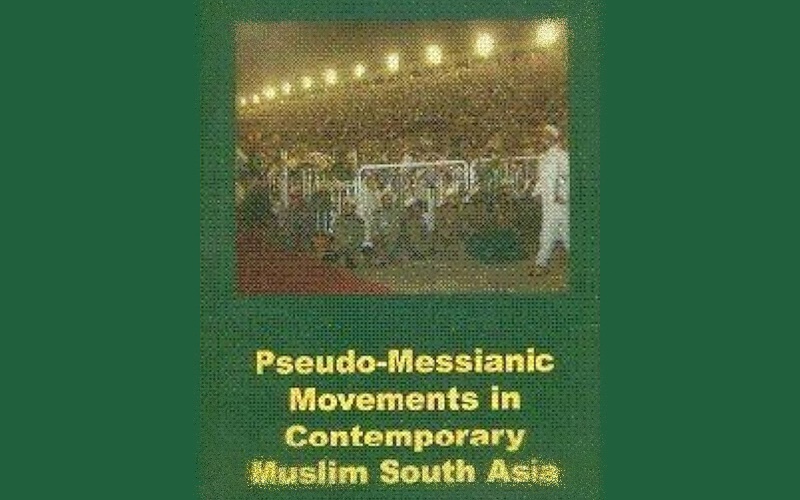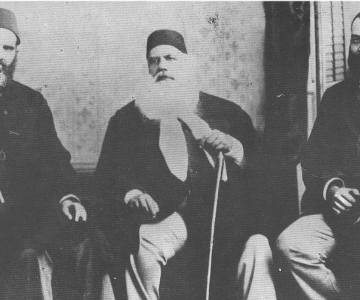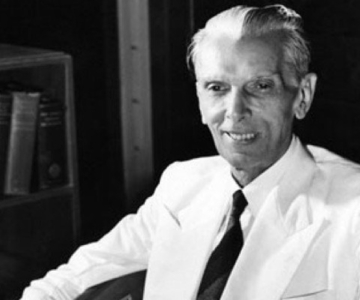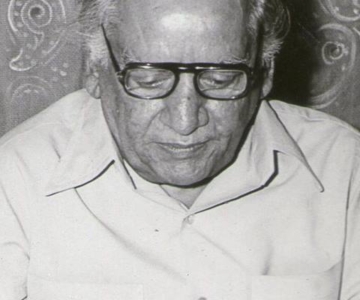This new book by Yoginder Sikand has been published by Global Media Publications in 2008.
Messianic hopes and expectations are common to almost all religions. Jews expect the Messiah to arrive to re-establish their temple in Jerusalem; Christians pray for Jesus to return to earth in his ‘Second Coming’; Hindus believe that Kalki, the tenth and last avatar of Vishnu, would appear just before the end of times; and the advent of the Imam Mahdi, who will usher in the end of the world, is a cardinal tent of the faith of Shia and many Sunni Muslims.
The messianic figure that almost all religions expect to arrive some time towards the end of the world is generally portrayed as representing the forces of good, as an agent of God and as eventually vanquishing, in a war of global and cosmic proportions, the forces of evil.
Messianic expectations and beliefs are not present in the Qur’an, which, although it speaks of a final Day of Judgment, does not contain any references to a messianic human figure who would herald the end of the world. This figure, however, is referred to on numerous occasions in the form of the Imam Mahdi in the corpus of Hadith, traditions attributed to or claimed to be about the Prophet Muhammad. Almost the entire limited corpus of writings on pseudo-messianic movements in Muslim South Asia consists of historical surveys of such movements in the ‘medieval’ period. On contemporary or near-contemporary such movements almost nothing substantial has been written.
It is hoped that this book, by focusing on three such movements that emerged in twentieth century Muslim South Asia and which are still alive, will add to our understanding of pseudo-messianic movements in Muslim environments, in particular, and messianism in general. Given the fact that messianic expectations and claims have now assumed such importance in global politics (the clash between certain Jewish, Christian and Islamic forces in West Asia, each driven by their own messianic visions, being the best example), more intensive studies on the phenomenon and often frightening implications of contemporary messianic movements and trends in all religious environments are called for.
CONTENTS
Preface
Chapter One
The Deendar Anjuman
Siddiq Hussain: The Founder of the Deendar Anjuman
The Launching of the Mission
Missionary Work Among the Lingayats
Siddiq Hussain’s Missionary Efforts Among the Hindus
Siddiq Hussain and the Muslims
Hijrah and Jihad
Changing Fortunes: 1947 And After
Chapter Two
The Atba-i Malak Bohra Jama’at
The Bohras: Origins and Messianic Beliefs
The Atba-i Malak Jama’at: Emergence and Messianic Claims
Split in the Community’s Ranks
The Ongoing Badri-Vakili Controversy
Islam, the Shari’ah and the Vakili Faith
Chapter Three
The Mehdi Foundation International
Riyaz Ahmad Goharshahi: His Life, Teachings and Messianic Claims
Splits in the Goharshahi Cult and the Formation of the MFI
Yunous al-Gohar and the MFI: Beliefs and Claims
Goharshahi’s Stature in MFI Propaganda
The MFI’s Missionary Work Among Non-Muslims
Is the MFI ‘Muslim’ in Any Sense?
Violence in Pakistan and Accusations of MFI Involvement
The Politics of the MFI
The MFI and the Bush’s ‘War on Terror’
About the Author:
Yoginder Sikand is a seasoned author on Islam and Muslims in South Asia. He holds a doctorate in history from London Univeristy and has done post doctoral research at the International Institute for the Study of Islam in the Modern World, Leiden, the Netherlands. He has written several books on Islam and Muslims in contemporary India including Sacred Spaces: Exploring Traditions of Shared Faith in India (Penguin, 2003), Muslims in India Since 1947: Islamic Perspectives on Inter-Faith Relations (Routledge Curzon, 2004), Islam, Caste and Dalit Muslim relations in India (Global Media Publications) and Struggling to be Heard: South Asian Muslim Voices (Global Media Publications). He is currently a freelance researcher based in Bangalore. He was associated with India’s leading university Jamia Millia Islamia as a professor and headed a center on Indian Muslims at another Delhi based university, Jamia Hamdard.
Order the book Now:
http://www.gmpublications.com/product_info.php?products_id=25680
Please contact
Global Media Publications
J-51-A, 1st Floor, AFE,
Jamia Nagar, Okhla,
New Delhi-110025
India
Tel: 91-11-55666830, 9818327757
E-mail: info@gmpublications.com
Or shop online at our secure online bookshop www.gmpublications.com



